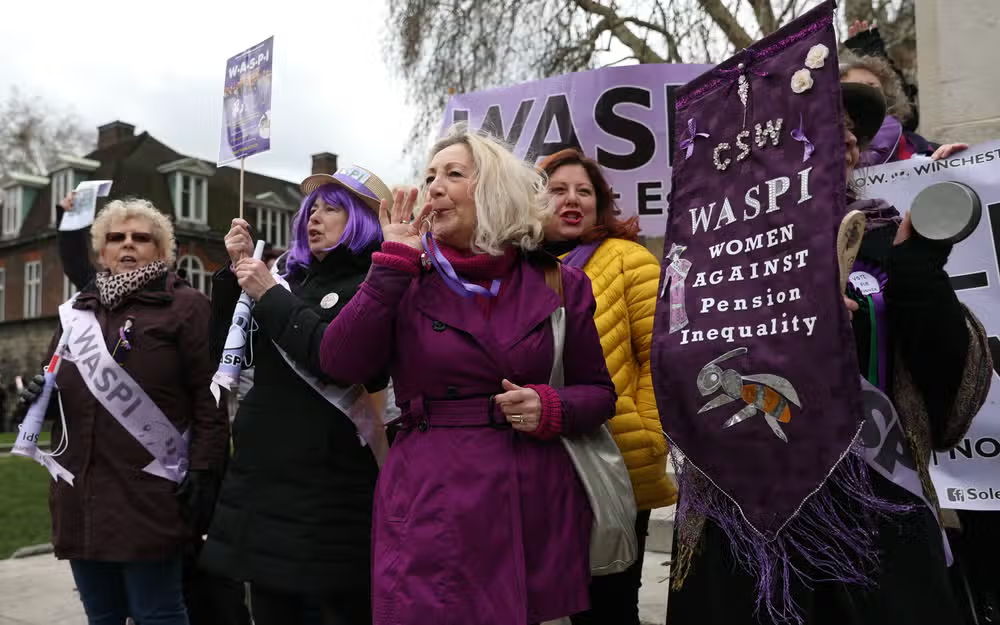
Introduction:
State Pension Age WASPI has been a topic of growing concern for many women born in the 1950s. When the government changed the retirement age to be the same for men and women, it created unexpected challenges for women nearing retirement. Many were caught off guard by this increase in the state pension age, and some had very little notice, leaving them financially unprepared and feeling unfairly treated.
State Pension Age WASPI stands for Women Against State Pension Inequality, a campaign group fighting for fair treatment. They argue that while they support equalizing the pension age, the government did not give them enough warning to plan for such a big change. As a result, many women born in the 1950s now face hardship as they wait longer to receive their pension, with some struggling to find work due to health issues or family responsibilities.
What Is the State Pension Age WASPI Campaign?
The State Pension Age WASPI campaign began because women born in the 1950s felt they were treated unfairly when their retirement age was suddenly raised. The government wanted to make the pension age the same for men and women, but many of these women didn’t get enough warning to plan. Now, they are dealing with unexpected challenges as they wait for their pension.
WASPI stands for Women Against State Pension Inequality. This group believes that while equalizing the pension age is fair, the way it was done was not. WASPI argues that many women did not get proper notice. Some women were only told close to their expected retirement age, leaving them with little time to adjust their financial plans. This lack of notice has led to a lot of hardship for many.
Many WASPI women say they would have saved more or planned differently if they had known. The campaign fights to raise awareness about the issue and seeks a fair solution. They believe that women who weren’t given enough notice deserve help, either through financial aid or other support options.
Why Did the State Pension Age Change for Women Born in the 1950s?
The state pension age change for women started with a law in 1995, known as the Pensions Act. The government wanted both men and women to retire at the same age, which is 65. Before this, women could retire at 60. This change meant that women born in the 1950s would have to wait longer to get their pension.
In 2011, more changes came that raised the pension age even faster. This increase hit women hard because they had even less time to prepare. Many women say they were only told of this change in their late 50s, which didn’t give them enough time to make new plans for retirement.
The goal of these changes was to save money for the pension system and to treat men and women equally. However, many women feel that the way it was done was not fair. WASPI wants the government to recognize this and provide support to those impacted by these sudden shifts.
How the 1995 and 2011 State Pension Changes Impacted 1950s Women
The changes to state pension age have caused major problems for women born in the 1950s. Many expected to retire at 60, but because of the new laws, they have had to wait several more years. This unexpected wait has left some women struggling financially and feeling frustrated.
The 1995 Pensions Act was the first big change, but many women say they didn’t know about it until much later. Then, the 2011 changes came along, speeding up the increase to the retirement age. Some women even found out they would have to work five or six years longer than they thought, with very little warning.
These changes mean that many women born in the 1950s are now left with limited options. Some are struggling to find work at an older age, and others are in poor health and cannot work. WASPI believes these women deserve support for the sudden shift in their retirement plans.
Financial Hardships Faced by WASPI Women Today
State Pension Age WASPI women today face real financial struggles. Many have already left the workforce, expecting to live on their pension, only to find they now have to wait years. With no income, they rely on savings that are quickly running out, leaving them worried about their future.
For many WASPI women, finding a job in their late 50s or early 60s is difficult. Employers may not hire them due to age, and some women are in poor health or care for family members. The few jobs they find are often temporary or part-time, offering little security. This lack of options leaves many feeling hopeless.
Some women had made life plans based on retiring at 60, only to have those plans disrupted. WASPI wants to highlight how this financial strain affects thousands of women, many of whom are single or have no other income. They call on the government to recognize these hardships and to take action.
Financial Challenges WASPI Women Are Facing
- Many have used up their savings just to get by.
- Some cannot find work due to age or health issues.
- Others must take jobs with low pay and no benefits.
How the State Pension Age WASPI Campaign Is Fighting for Fair Treatment
State Pension Age WASPI is working to make sure women are treated fairly. They want the government to understand the problems caused by raising the pension age without enough warning. WASPI believes that women who couldn’t plan for these changes deserve financial support.
WASPI has gathered stories from affected women to show the impact. Many women describe feeling betrayed, as they had carefully planned for retirement at 60. Some were told of the new pension age just a year before turning 60, giving them no time to save or adjust their plans.
The WASPI campaign continues to push for fair treatment, asking for compensation or other help for these women. They want the government to address the hardships caused and to give proper support for those impacted by the changes. WASPI hopes their efforts will lead to a fairer outcome for women born in the 1950s.
Actions WASPI Is Taking for Change
- Collecting stories from affected women to raise awareness.
- Calling for financial support or compensation for impacted women.
- Working with officials to push for fair solutions.
Conclusion
The State Pension Age WASPI issue has affected many women, especially those born in the 1950s. They were caught off guard by the sudden changes to their pension age and had little time to prepare. This has caused financial struggles for many, leaving them feeling frustrated and unfairly treated. WASPI is doing its best to raise awareness and fight for fair treatment for these women.
It’s important that the government listens to the voices of WASPI women and finds a way to help those who are struggling. With more support, these women can get the fair retirement they deserve. Hopefully, the efforts of the WASPI campaign will bring about real change for women who have been impacted by these unfair pension age changes.
FAQs
Q: What is the WASPI campaign?
A: The WASPI campaign stands for Women Against State Pension Inequality. It fights for women born in the 1950s who were unfairly affected by sudden changes to their state pension age.
Q: Why did the state pension age change for women?
A: The state pension age for women was raised to 65, the same as men’s, as part of a government effort to equalize pension ages and save money.
Q: How were women affected by these changes?
A: Women born in the 1950s were not given enough notice about the changes, leaving many with little time to adjust their retirement plans. Some had to wait years longer to receive their pension.
Q: What does WASPI want from the government?
A: WASPI wants the government to acknowledge the unfair way the pension age changes were implemented and provide financial support or compensation to affected women.
Q: How can I support the WASPI campaign?
A: You can support the WASPI campaign by raising awareness, signing petitions, and sharing stories about the struggles women have faced due to the pension age changes.
Q: How has the WASPI campaign helped affected women?
A: WASPI has gathered personal stories, raised public awareness, and lobbied the government to push for fair treatment and financial support for women impacted by the pension age changes.







